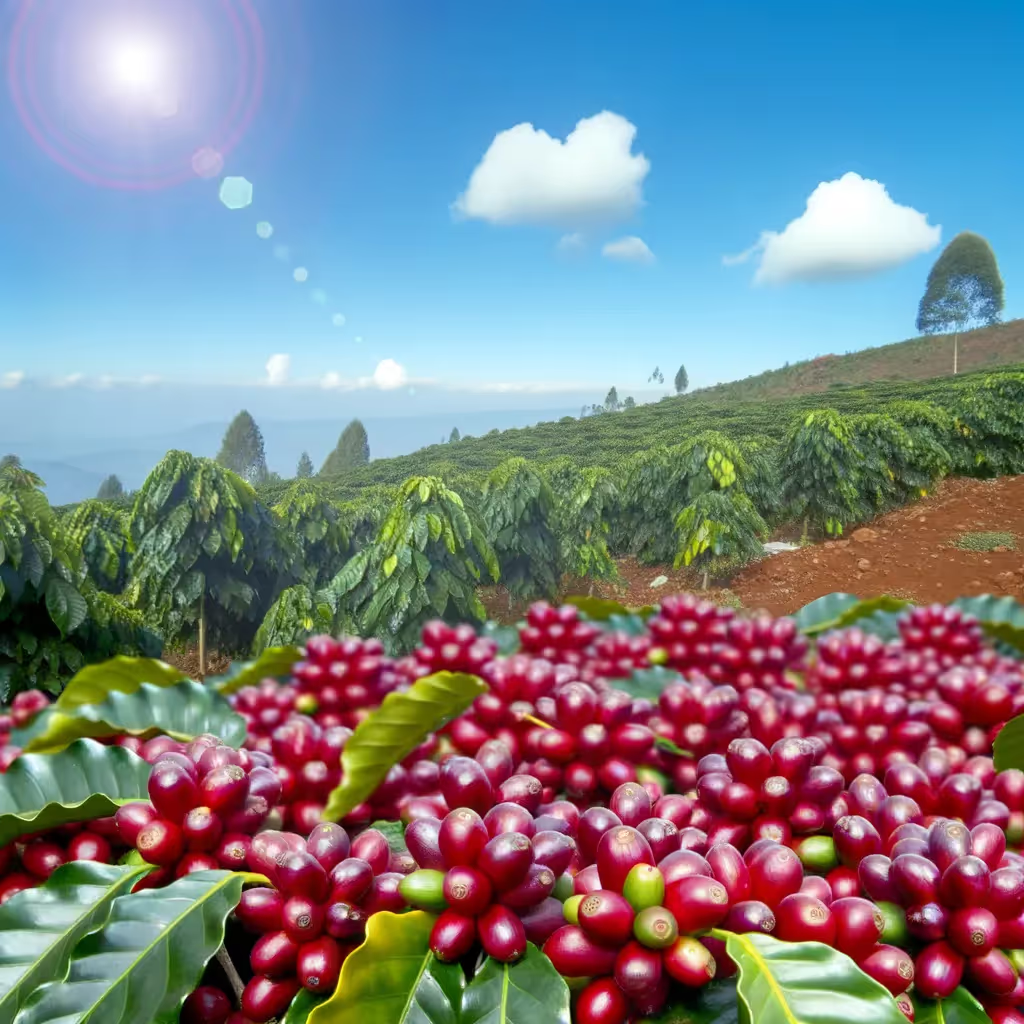Nicaraguan Vs. Rwandan Coffee
This comparison explores the nuanced differences between Nicaraguan and Rwandan coffee, examining their flavor profiles, growing conditions, and optimal brewing methods for coffee enthusiasts seeking the perfect cup.

Brief Description
Nicaraguan coffee is known for its smooth, mild flavor with a balanced profile. Grown in the lush mountains of the country's northern regions, these beans benefit from ideal growing conditions, including rich volcanic soil and a perfect blend of sunshine and rainfall. Nicaraguan coffee often exhibits a delightful combination of chocolate and nut notes, complemented by a subtle fruitiness and a clean, crisp finish.
Rwandan coffee is a hidden gem in the specialty coffee world, known for its bright acidity, complex flavors, and clean cup profile. Grown in the high-altitude regions of this small East African nation, Rwandan coffee benefits from rich volcanic soils and ideal growing conditions. The country's tumultuous history has given way to a thriving coffee industry, with smallholder farmers producing some of the most sought-after beans in Africa. Rwandan coffee is characterized by its tea-like body, citrus notes, and often floral or fruity undertones, making it a favorite among coffee enthusiasts seeking unique and vibrant flavors.
Importance of Comparison
Comparing Nicaraguan and Rwandan coffee is crucial for coffee lovers looking to expand their palate and understand the diverse world of specialty coffee. These two origins offer distinct flavor profiles and represent different coffee-growing regions, providing insight into how geography, climate, and processing methods influence taste. By exploring these differences, consumers can make informed decisions about their coffee purchases and appreciate the unique characteristics of each origin.
Key Attributes
Origin
Nicaraguan
Rwandan


Consumer Guide
When choosing between Nicaraguan and Rwandan coffee, consider your flavor preferences. If you enjoy a smooth, balanced cup with chocolate and nut notes, Nicaraguan coffee might be your ideal choice. For those seeking bright, complex flavors with citrus and floral undertones, Rwandan coffee could be the perfect match. Consider brewing methods as well; both origins excel in pour-over and French press, but Nicaraguan beans are particularly well-suited for espresso, while Rwandan coffee shines in cold brew. Pay attention to roast levels, as they can significantly impact flavor profiles. Light to medium roasts often best showcase the unique characteristics of each origin. Lastly, consider supporting smallholder farmers by choosing Rwandan coffee, which can have a positive impact on local communities.
Expert Opinions
Coffee expert Maria Rodriguez notes, 'Nicaraguan coffee offers a comforting, familiar profile that's perfect for everyday drinking, while Rwandan coffee provides an exciting, complex experience that can surprise even seasoned coffee drinkers.' Roastmaster John Chen adds, 'The high-grown Rwandan beans often have a tea-like delicacy that sets them apart, whereas Nicaraguan coffee's balance and versatility make it a favorite among roasters for both single-origin offerings and blends.'
FAQs
Nicaraguan coffee typically features chocolate and nut notes with subtle fruitiness, while Rwandan coffee is known for its bright citrus notes, floral undertones, and sometimes red berry flavors. Nicaraguan coffee tends to have a smoother, more balanced profile, whereas Rwandan coffee often offers a more complex and vibrant taste experience.
Both Nicaraguan and Rwandan coffees excel in pour-over and French press methods. However, Nicaraguan coffee is particularly well-suited for espresso due to its balanced profile, while Rwandan coffee shines in cold brew, highlighting its bright and complex flavors. Experiment with different methods to find your preferred way of enjoying each origin.
Nicaraguan coffee benefits from rich volcanic soil and grows at altitudes of 1000-1500m, contributing to its smooth, balanced flavor. Rwandan coffee is grown at higher altitudes (1200-2000m) in volcanic soils, which results in a brighter acidity and more complex flavor profile. These differences in growing conditions play a significant role in shaping the unique characteristics of each origin.
Both Nicaraguan and Rwandan coffees typically undergo washed, natural, and honey processing methods. Washed processing is common in both origins and tends to produce cleaner, brighter flavors. Natural and honey processes can add complexity and fruity notes to the coffee. The choice of processing method can significantly impact the final flavor profile of beans from both origins.
Nicaragua produces significantly more coffee than Rwanda, with an annual production of around 150,000 metric tons compared to Rwanda's 16,000 metric tons. This difference in scale reflects Nicaragua's longer history as a major coffee exporter, while Rwanda's coffee industry has been growing and gaining recognition more recently for its high-quality specialty beans.
While both origins offer unique flavors, Rwandan coffee is often considered more exotic and diverse in its flavor profile. Its bright acidity, floral notes, and sometimes tea-like body make it an exciting choice for coffee enthusiasts looking to explore new and complex flavors. However, Nicaraguan coffee's balanced profile and subtle complexities also make it a favorite among those who appreciate nuanced, approachable flavors.
Conclusion
Both Nicaraguan and Rwandan coffees offer unique and delightful experiences for coffee lovers. Nicaraguan coffee shines with its smooth, balanced profile and chocolate-nut notes, making it a versatile choice for various brewing methods, especially espresso. Rwandan coffee stands out with its bright, complex flavors and clean cup profile, excelling in methods like pour-over and cold brew. While Nicaragua produces a larger volume of coffee, Rwanda's smaller production focuses on high-quality, specialty beans. Ultimately, the choice between these two origins depends on personal taste preferences and the desire to explore different flavor profiles. We encourage coffee enthusiasts to try both to appreciate the diverse world of specialty coffee fully.






